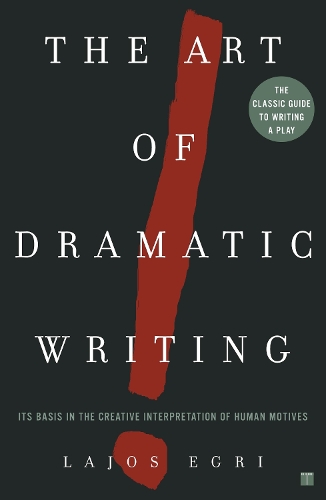
Art Of Dramatic Writing: Its Basis in the Creative Interpretation of Human Motives
(Paperback)
Publishing Details
Art Of Dramatic Writing: Its Basis in the Creative Interpretation of Human Motives
By (Author) Lajos Egri
Simon & Schuster
Touchstone
1st January 1986
17th May 2004
United States
Classifications
Tertiary Education
Non Fiction
Creative writing and creative writing guides
Reference works
808.02
Physical Properties
Paperback
320
Width 140mm, Height 214mm, Spine 25mm
256g
Description
Lajos Egri examines a play from the inside out, starting with the heart of any drama: its characters. For it is people - their private natures and their inter-relationships - that move a story and give it life. All good dramatic writing depends upon an understanding of human motives. Why do people act as they do What forces transform a coward into a hero, a hero into a coward What is it that Romeo does early in Shakespeare's play that makes his later suicide seem inevitable Why must Nora leave her husband at the end of A Doll's House These are a few of the fascinating problems which Egri analyzes. He shows how it is essential for the author to have a basic premise - a thesis, demonstrated in terms of human behaviour - and to develop his dramatic conflict on the basis of that behaviour. Premise, character, conflict: this is Egri's ABC. His book is a direct, jargon-free approach to the problem of achieving truth in a literary creation.
Reviews
Moss Hart I found Lajos Egri's book enormously interesting -- one of the best I have ever read.
Author Bio
Lajos Egri was born in the city of Eger, Hungary, and wrote his first three-act play at the age of ten. For more than thirty-five years he has written and directed plays in Europe and the United States. He was director of the Egri School of Writing in New York City for many years.
